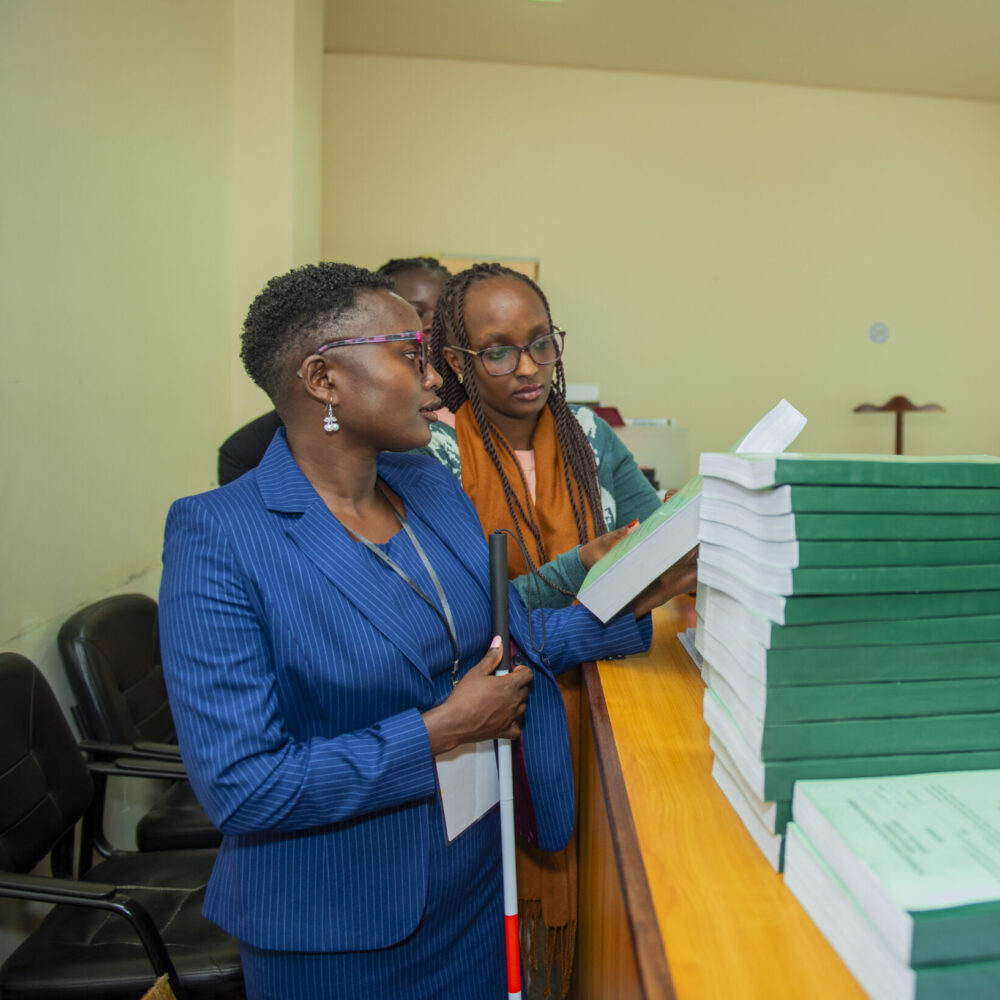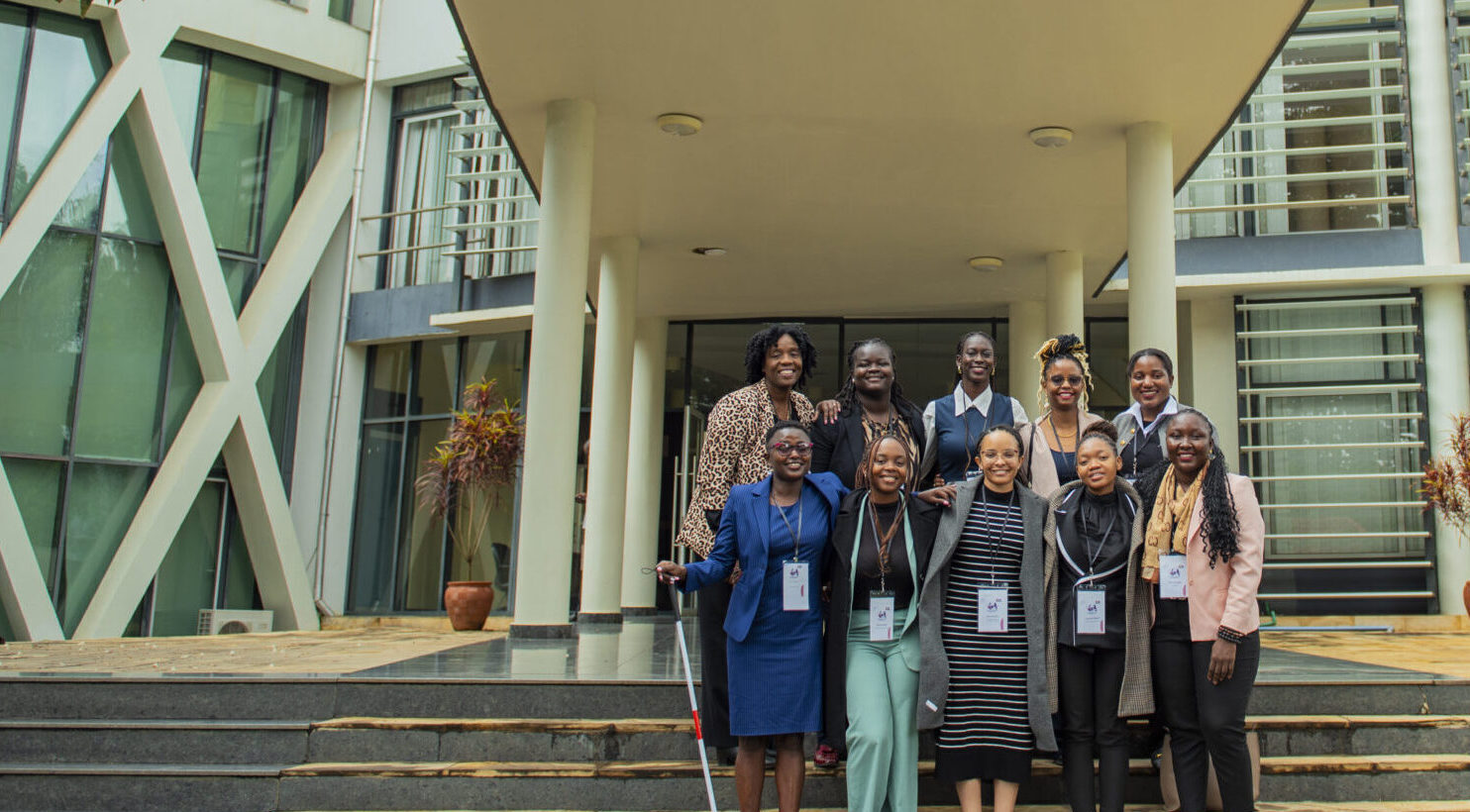What We Offer
- A paid work placement at a leading human rights organization in Africa which focuses on gender justice issues and strategic litigation
- Mentorship by WJW’s Head of Fellowships and host organizations’ supervisors
- At least one in-person convening and an extensive monthly online training program led by leading human rights experts
- Networking opportunities with leading human rights experts, lawyers, judges, activists and academics and participation in events such as Obama Foundation’s Girls Opportunity Alliance
- Access to the WJW Fellowship Alumni Program network for continued support, knowledge sharing and collaboration

Fellows are expected to:
- Support the legal work of their host organizations which may include providing direct legal assistance to individuals, legal research, legal representation, drafting submissions, engaging in advocacy and speaking at events. The specific tasks depend on the mandate and focus of the host organization.
- Identify and support at least one strategic litigation case designed to advance women and girls’ rights in national, regional or international courts or UN mechanisms.
- Carry out at least two outreach activities to students at a school or university on advancing women and girls’ rights during the fellowship.
- Engage in the Fellowship Program activities, including mentoring, training and networking opportunities.

Required Qualifications
- A law degree from a recognized academic institution
- Practicing Certificate and work authorization:
- The applicant must be admitted to practice as a lawyer in the country of the selected host organization.
- Fellows are expected to be based in the country of their host organization, and as such, should have the right to work in the host organization’s country. Our host organizations are based in The Gambia, Kenya, Liberia, Malawi, Sierra Leone, South Africa, and Tanzania.
- Please note that regional organizations – the Institute for Human Rights and Development in Africa (IHRDA), based in The Gambia, and the Pan African Lawyers Union (PALU), based in Tanzania – are willing to accept applications from qualified candidates licensed to practice law in other African countries. They may be able to support some international relocation costs and work permits in such cases. However, for all other organizations, costs relating to international relocation and acquiring work authorization cannot be supported.
- Relevant work experience:
- At least two years of post-qualification experience in the legal field. As this fellowship is for early-career women lawyers, we will be less likely to consider women with more than five years of legal experience post-qualification.
- Experience in women’s rights and working in human rights organizations is preferred.
Relevant Skills
- Interest in gender equality and women’s rights
- Commitment to the mission and goals of the Clooney Foundation for Justice and the relevant host organization
- A demonstrated ability to conduct complex legal analysis and fact-finding
- Excellent research, writing and verbal communication skills
- Self-starter with excellent interpersonal and teamwork skills
- Demonstrated commitment to social justice and human rights, and creativity in crafting strategies to advance justice in our priority areas
- Additional experience working with survivors and/or impacted communities preferred
- Experience integrating gender and child-sensitive perspectives into substantive work would be useful
- Willingness to travel
- Fluency in English required; proficiency in other working languages relevant to the countries of host organizations preferred
Read over the expectations and required qualifications above. Then, when you’re ready, fill out the application form here.
Fellowships will be full-time, one-year opportunities, running from January to December.
The fellowship is in-person, and fellows will be based at the offices of their host organizations. Hybrid working may be accommodated by host organizations on a case-by-case basis.
As fellows will be placed in several countries in Africa, most of the mentorship, peer networking, and training elements of the program provided by CFJ will occur online. However, CFJ does plan to organize an in-person convening of the cohort at least once during the fellowship year.
This will depend on the needs of individual host organizations. Fellows should expect to travel occasionally within the region to attend fellowship program events, and potentially may be required to travel to assist with the legal work of their host organizations.
An ideal candidate for CFJ’s Waging Justice for Women Fellowship will be an African woman lawyer who is accredited to practice law in the country of one of the host organizations and who is early in their career (less than five years of professional experience, post-accreditation). Please see the application for additional qualification criteria.
Fellows will work directly for a specific host organization for the entire year and support that organization’s litigation and legal advocacy portfolios relating to women’s rights.
CFJ tries to accommodate applicants’ preferences for host organizations, but where that is not possible, fellows may be matched based on their citizenship, residency or work authorization in a particular geographical location, as well as their admission to practice law in that location.
For more information about this year’s host organizations, see here.
Host organizations will provide their fellows with the equivalent in local currency of a $25,000 USD gross annual salary. Additional travel or work expenses may be covered at the discretion of CFJ and/or the host organization.
There is no fee to apply for the fellowship.
Applications for the 2026 cohort of fellows will be open from July 1 to August 4, 2025. Shortlisted candidates will be contacted for interviews in September. Offers for new fellows will be made by November 2025. Those selected for a fellowship should expect to begin in January 2026.
If you have any questions or issues that arise in completing the application, please email [email protected]. As we expect to receive a large number of applications, CFJ will only be able to inform candidates who are shortlisted; other inquiries about the status of applications will go unanswered.
